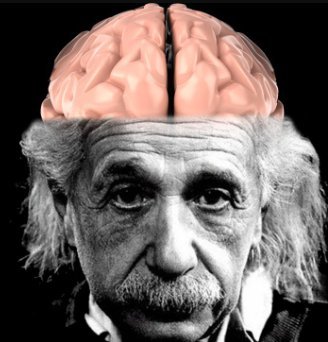Albert Einstein or Stephen Hawking?
Comparing the scientific contributions of Albert Einstein and Stephen Hawking is akin to pondering the achievements of two distinct eras in the realm of theoretical physics. Each luminary possessed unique circumstances and tools, navigating their intellectual voyages with contrasting resources and challenges. Such a comparison invites reflection on the essence of genius, the interplay between circumstance and brilliance, and the enduring impact of their groundbreaking insights.

Einstein, a visionary ahead of his time, embarked on his intellectual journey armed with little more than his profound curiosity and an indomitable spirit. Devoid of modern technological marvels, he relied on pen, paper, and sheer intellectual acumen to forge his path. His triumphs emerged from contemplation, deep thought, and an unwavering commitment to unraveling the mysteries of the universe. Despite societal indifference during his formative years and meager resources, Einstein’s relentless pursuit of knowledge eventually gave birth to the revolutionary theories of relativity, altering the fabric of physics and human understanding.
In stark contrast, Stephen Hawking traversed a landscape enriched by technological advancements and institutional support. Equipped with computational tools and the backing of academic institutions, Hawking’s journey into the cosmos was facilitated by resources that Einstein could only dream of. Despite grappling with physical adversities, Hawking’s determination and intellect shone through, propelling him into the echelons of scientific greatness. His computational models and theoretical contributions illuminated new facets of black holes, cosmology, and the fundamental laws of the universe.
The comparison between these two titans of physics transcends mere accomplishments. It delves into the essence of their brilliance and the context in which their contributions unfolded. While Einstein thrived against societal odds and financial constraints, Hawking harnessed the power of technology and institutional backing to navigate the complex terrain of theoretical physics.
Einstein’s theories stood as bastions of scientific thought, resisting challenges even in the face of Hawking’s computational modeling. The fact that Hawking, armed with modern tools, struggled to displace Einstein’s theories attests to the enduring brilliance of the man who reshaped our understanding of the cosmos armed only with his intellect and a pen.
Yet, the divergence in their circumstances and the tools at their disposal does not diminish either’s legacy. Einstein’s enduring impact on physics remains unparalleled, his theories standing firm despite the passage of time. Hawking, too, etched his name in the annals of scientific history, enriching our understanding of the universe in ways previously unimagined.
In the final analysis, the comparison between Einstein and Hawking transcends the tools they employed or the circumstances they faced. It stands as a testament to the diverse pathways genius can traverse, the amalgamation of intellect, perseverance, and circumstance that shapes scientific innovation. Both were titans in their own right, leaving an indelible mark on the tapestry of human knowledge, each contributing in unique ways to our understanding of the cosmos.
